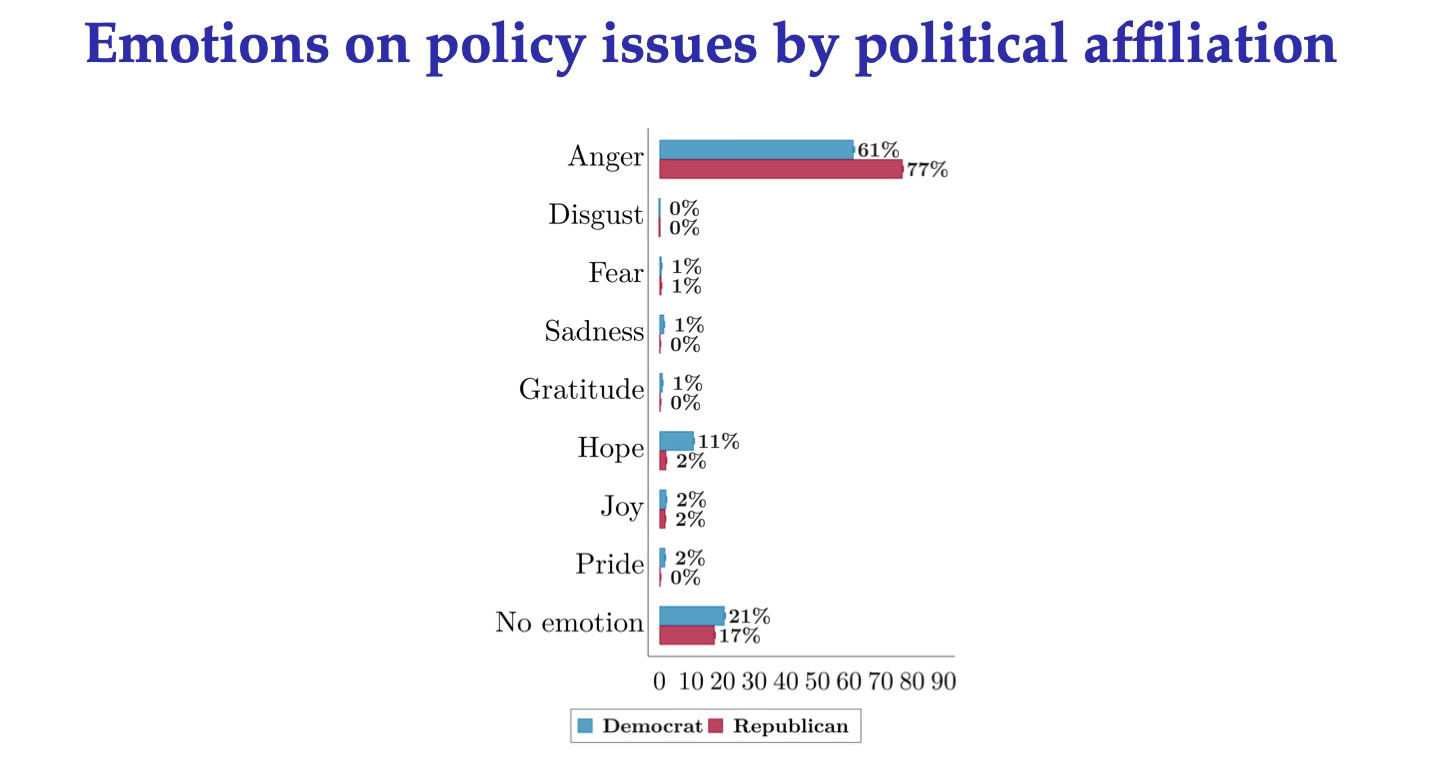If you’re required to analyze American politics all day for work, or you somehow enjoy this form of pain, it’s hard to miss how emotional the whole enterprise has become in recent decades. Politics, of course, has always involved leaders harnessing complex feelings and instincts among the populace to advance policy objectives, gain power, and punish perceived enemies. For time immemorial, shrewd politicians have preyed on the sentimental tics of humans, pressing their psychic buttons and pitting one group of people against another group.
Now, with basically everyone in America possessing little pocket mind manipulators, the emotional content of politics has exploded. Consider the new Trump and GOP tax and budget legislation, the not-at-all-emotionally labeled “One Big Beautiful Bill.” According to partisan chatter, the act is either the “MAGA murder bill” that is literally a “death sentence for thousands of Americans,” or it’s “the single most popular bill ever signed” that will “usher in the Golden Age of America.” Big range of possibilities there!
Or consider President Trump’s recent decision to bomb three Iranian nuclear sites, variously described as the beginning of a nuclear World War III by ideological critics like Marjorie Taylor Greene or as the basis for awarding Trump the Nobel Peace Prize by ideological supporters like Israeli Prime Minister Benjamin Netanyahu. Don’t think you can get the Nobel for starting a world war, but maybe you could get it for averting one. Which one is it?!
Lost in the emotional propaganda of contemporary politics is any rational discussion of the pros and cons of various policy choices, neutral evaluations of legislative language and motives, and measured examination of actual outcomes and necessary adjustments to help improve complex legislation or executive actions. Partisan path dependency requires Democrats to uniformly hate and despise everything that Trump is doing and it also requires Republicans to uniformly love and praise his every action. Dissidents, meaning Democrats who might be okay with some of Trump’s policies or Republicans who might disagree with others, are not allowed in the arena and will be subjected to the partisan star chamber online and in the media.
Economists and political scientists have done some fascinating work on the role of emotions in modern politics, looking at both the demand side (what people believe and want) and the supply side (what the leaders offer). For example, this recent academic paper explored the psychological content of social media postings from heavy partisan users from 2013 to 2024 (on issues including abortion, democracy, gender equality, gun control, immigration, taxes and inequality, climate, and trade), finding one emotion standing out way above all the others: anger.
The same pattern was found on the supply side when the researchers examined the emotional content of the tweets from official Republican Party and Democratic Party accounts from 2013 to 2024 and in speeches and public interactions made by Trump, Biden, and Harris from 2023 to 2024. “Supply matches demand,” according to their findings. Anger dominated all other emotions in terms of social media messages from party officials and in many public statements from leaders, with hope emerging a bit more in the official output of Democrats last cycle.
If you get the sense that everyone in politics is mad about something all the time—almost certainly based on what the other side said or did, or what they didn’t say or didn’t do—you’re not missing the bigger picture or losing your mind. As this research indicates, politics today is predominantly about anger, with a smattering of other emotions tossed in to calm the riled-up masses and make the partisans feel good about themselves from time to time.
Emotions reign supreme in American political life—purposefully engineered by and for partisan elites. Rationally determining and evaluating what is best for the country, regardless of partisanship, is for suckers.
But fear not, less emotional citizens of America! You can stop the madness in politics by refusing to engage in this psychological influence operation in your own life—and in your online interactions. Before piping off about “Trump this” or “Democrats that,” take a breath, try to examine the available facts and credible analysis across the ideological spectrum, and wait for more hard data and evidence to come in on a particular bill, ruling, or decision before making any final assessments.
It’s difficult to restrain yourself when those around you make insta-judgments on every issue in real time. But the “stop-evaluate-wait and see” method for opinion formation offers a viable path towards a saner culture that will help more people find the off-ramp from our crazy and overly emotional politics.
.png)







